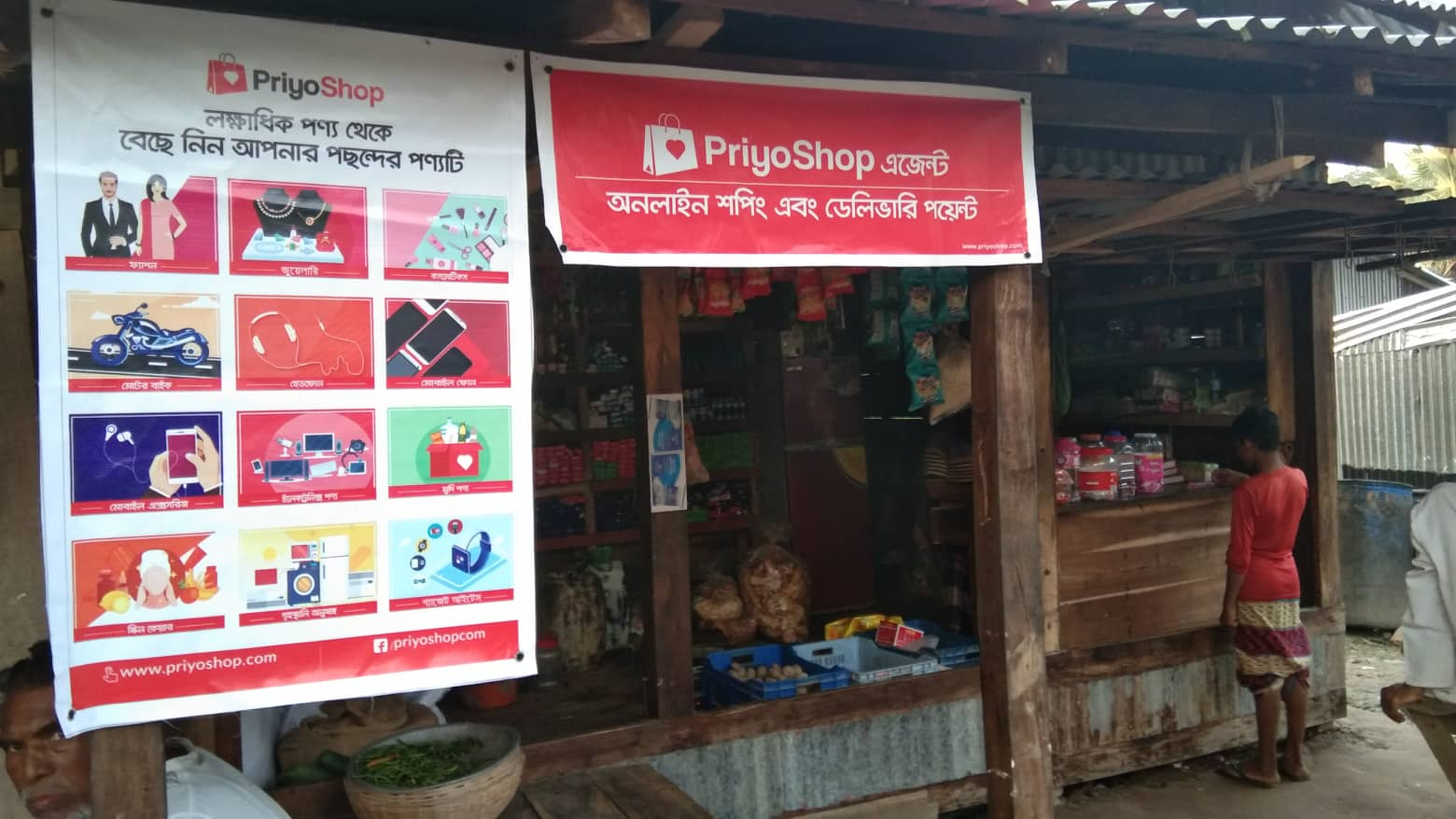Buying a new smartphone or laptop can be a pain for consumers living in Bangladesh’s rural areas. Digital brands, unfortunately, are not accessible in many of these neighborhoods. And even if they wanted to, these businesses can’t easily reach consumers in these areas because there aren’t enough resellers willing to carry inventory.
Micro-, small-, and medium-sized enterprises, though, may be the solution. These smaller players can easily penetrate neighborhoods and effectively connect brands with rural consumers. They’re also willing to be part of the e-commerce space, which currently takes up just less than 1% of the entire retail sector in Bangladesh, Asikul Alam Khan, founder and CEO of e-commerce startup PriyoShop, tells Tech in Asia.
“Instead of fighting with other digital commerce in the red ocean market, we decided to partner with the small retailers and make them the hub of digital commerce,” he says.

The Bangladesh-based startup, which won Tech in Asia’s Pitch Night in May, offers both an e-commerce marketplace and a retailer-facing app. It helps small retailers get more inventory from big brands such as Samsung and Philips, among others, and manages end-to-end fulfillment—from payments to logistics.
On PriyoShop’s platform, small retailers sell mobile phones, gadgets, lifestyle products, and other items. Customers, meanwhile, can make bill payments, place orders, and have products delivered to their doorstep.
The company is looking to add more services as well, such as bus and airline ticketing and travel booking. But with COVID-19 forcing people to stay at home, PriyoShop has started to deliver essential goods such as household staples, healthcare and personal care items, and safety products, among others.
Walmart-like ambition
Founded in 2013, the startup claims it currently has 500,000 monthly active users and 10,000 agents registered on its platform, who together cover 490 towns.
Its ambition: Building a complete e-commerce network that “has the same buying power as Walmart,” attracting one million retailers and 100 million customers in three to four years.

However, the e-commerce space is becoming increasingly crowded, even in Bangladesh, where the market is expected to reach USD 3 billion by 2023, says Khan. Other players in the country include Alibaba-owned Daraz, electronics-focused Pickaboo, American Pegasus Tech Ventures-backed AjkerDeal, and Othoba, among others.
That being said, Khan notes that these platforms are all in self-help mode, requiring customers to download an app and set up their businesses on their own.
The CEO argues that people in Bangladesh, especially those who live in rural areas, need assistance to go online. “If you want to create something for the 170 million people, you need to think differently. The services are the same—commerce, digital commerce—but the channel matters a lot,” he says.
Funding secured
For now, PriyoShop needs to focus on bolstering its performance. It secured angel funding in 2018, followed by a seed round from Accelerating Asia and Singapore-based angel investors in 2019. It’s now looking to raise pre-Series A and Series A money to further expand its business, develop its tech infrastructure, and hire more people to manage its supply chain.
“We are close to operating break-even at a unit economic level. Our major cash burn is only for tech and people,” Khan says, adding that 2020 will be a “significant growth-year” for the company.
Over the next two years, it aims to double down on partnerships and add 100,000 retailers to its platform in a bid to reach USD 1 billion in gross merchandise volume and ramp up its user base by 40%.
“By reducing the need for a wholesale middleman, we effectively generate higher margins,” Khan says.
He also believes that consumers will be increasingly drawn to on-demand products and services, which may continue to drive e-commerce in the post-COVID-19 era. “Now that people are experiencing and expecting the security, simplicity, and seamlessness of digital commerce, there’s just no turning back.”
This article first appeared in Tech in Asia.
